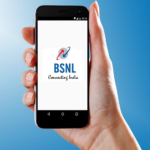
As technology continues to transform the way we handle finances, online wallets and traditional banking have emerged as popular options for managing money. While traditional banking has been the conventional method for decades, online wallets offer digital convenience and unique features. In this blog, we will explore the pros and cons of online wallets and traditional banking to help you make an informed decision about which option suits your needs best.
Online Wallets
Online wallets, also known as e-wallets or digital wallets, are virtual accounts that allow users to store and manage funds digitally. Here are some pros and cons of using online wallets:
Pros:
1. Convenience and Accessibility: Online wallets provide easy access to funds anytime, anywhere through mobile devices or computers. They reduce the need for carrying physical cash or cards.
2. Enhanced Security: Online wallets often employ advanced security measures such as encryption, multi-factor authentication, and biometric verification, making them secure options for storing and transferring funds. Additionally, since online wallets don’t require sharing credit or debit card information for every transaction, thus the risk of card fraud is minimized.
3. Budgeting and Expense Tracking: Many online wallets offer features that allow users to track and categorize their expenses, set budget limits, and receive spending insights. These tools can help users gain better control over their finances and make informed financial decisions.
4. Cashback and Rewards: Some online wallets offer cashback incentives or rewards programs for using their services like Airtel Payments Bank. Users can earn rewards points, discounts, or exclusive offers when making purchases or transactions through the online debit card or wallet, providing potential savings and additional benefits.
Cons:
1. Limited Acceptance: Not all merchants or businesses accept online wallets as a payment method. While their popularity is increasing, you may still encounter situations where traditional payment methods like cash or cards are required.
2. Dependency on Technology: Online wallets rely on stable internet connectivity and functioning devices. In the absence of a reliable internet connection or during technical glitches, accessing and using the wallet may become challenging.
Traditional Banking
Traditional banking refers to the financial practice that has been operating for decades. Let’s examine the pros and cons of traditional banking:
Pros
1. Trust and Familiarity: Traditional banks have established credibility and trust over time. Many people find comfort in dealing with physical branches.
2. Wide Acceptance: Traditional banking methods are widely accepted globally. You can use physical currency, or debit/credit cards issued by traditional banks at various merchants, making them a convenient option in most situations.
3. Variety of Services: Traditional banks offer a wide range of financial services, including savings accounts, loans, mortgages, and investment opportunities. They often have dedicated customer service teams to assist with inquiries or concerns.
Cons
1. Limited Accessibility: Traditional banking typically operates during specific hours and requires physical visits to branches for most transactions.
2. Time-consuming Processes: Traditional banking can involve lengthy processes for activities such as opening accounts, applying for loans, or resolving complex issues. This may result in delays and additional paperwork compared to the quick and automated processes of online wallets.
In conclusion, choosing between online wallets and traditional banking depends on your personal preferences, lifestyle, and financial needs.








